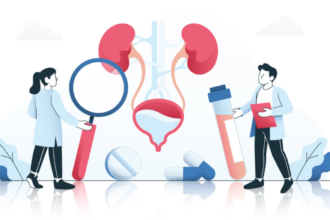Heart clinics play a crucial role in diagnosing and treating cardiovascular diseases, which remain one of the leading causes of death worldwide. To combat this health crisis, heart clinics are increasingly embracing innovation and technology to improve patient care, enhance diagnostic accuracy, and revolutionise treatment options. This blog explores the various ways in which clinics are leveraging innovation and technology to deliver better outcomes for patients, whether that’s a London heart clinic or clinics around the world.
- Advanced Imaging Technologies for Accurate Diagnosis
- Telemedicine for Remote Monitoring and Consultations
- Wearable Devices and Mobile Applications for Personalised Care
- Artificial Intelligence for Data Analysis and Decision Support
- Robotic-Assisted Surgeries for Precise Interventions
- Data Integration and Electronic Health Records (EHRs)
Advanced Imaging Technologies for Accurate Diagnosis
In recent years, heart clinics have witnessed significant advancements in imaging technologies that aid in accurate diagnosis. Techniques like echocardiography, cardiac MRI, and computed tomography (CT) scans provide detailed insights into the structure and functioning of the heart. These technologies enable cardiologists to detect abnormalities, assess heart function, and plan personalised treatment strategies with greater precision.
Telemedicine for Remote Monitoring and Consultations
The advent of telemedicine has transformed the way heart clinics interact with patients. Telemedicine enables remote monitoring of patients’ vital signs, such as blood pressure, heart rate, and oxygen saturation, allowing healthcare providers to track their progress and intervene when necessary. Moreover, telemedicine facilitates virtual consultations, enabling patients to receive expert advice without the need for in-person visits, particularly beneficial for individuals residing in remote areas or those with limited mobility.
Wearable Devices and Mobile Applications for Personalised Care
Wearable devices and mobile applications have become powerful tools for personalised care in the realm of heart health. Patients can now monitor their heart rate, exercise intensity, and sleep patterns, and even detect abnormal heart rhythms using devices like smartwatches or fitness trackers. These data can be seamlessly integrated into mobile applications, enabling patients to track their progress, set goals, and receive personalised feedback. Additionally, these devices can alert both patients and healthcare providers about any alarming changes in heart health, promoting early intervention and preventing adverse events.
Artificial Intelligence for Data Analysis and Decision Support
Artificial intelligence (AI) has emerged as a game-changer in healthcare, and heart clinics are no exception. AI algorithms can analyse vast amounts of patient data, including medical records, diagnostic images, and genetic information, to identify patterns and correlations that may elude human analysis. By leveraging AI, heart clinics can improve the accuracy of diagnosis, predict the risk of cardiovascular events, and optimise treatment plans tailored to individual patients’ needs.
Robotic-Assisted Surgeries for Precise Interventions
Robotic-assisted surgeries have revolutionised the field of cardiovascular interventions. These advanced surgical systems provide enhanced precision and dexterity, allowing surgeons to perform complex procedures with minimal invasiveness. Robotic platforms enable cardiologists to navigate delicate cardiac structures more accurately, resulting in reduced complications, shorter hospital stays, and faster recovery for patients.
Data Integration and Electronic Health Records (EHRs)
Heart clinics are increasingly adopting electronic health records (EHRs) to streamline patient care and enhance collaboration among healthcare providers. EHRs allow for seamless data integration, ensuring that patient information is readily accessible across different specialities and locations. This integration enables cardiologists to make informed decisions based on comprehensive patient histories, reducing the risk of errors, and improving the overall quality of care.
As cardiovascular diseases continue to pose a significant health challenge globally, heart clinics are at the forefront of embracing innovation and technology to improve patient outcomes. Advanced imaging technologies, telemedicine, wearable devices, AI, robotic-assisted surgeries, and EHRs are just a few examples of how heart clinics are leveraging technology to enhance diagnosis, treatment, and patient care. By embracing these innovations, heart clinics are revolutionising the field of cardiology and offering hope for a healthier future.















